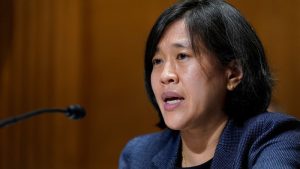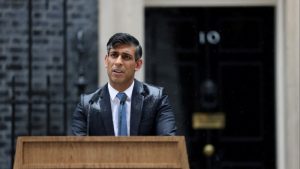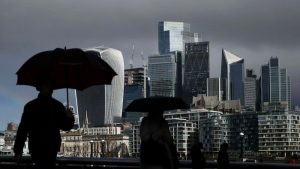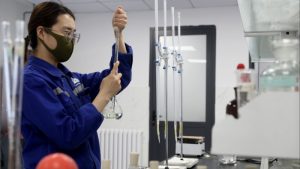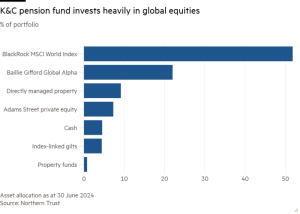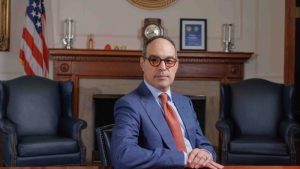The Wagner-style mercenaries plotting unrest in Romania
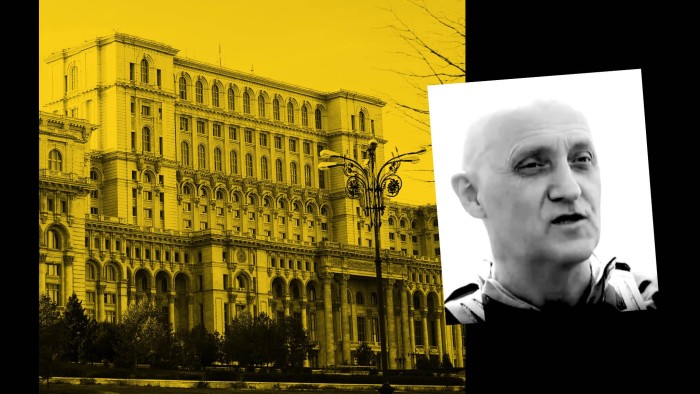
Romania’s far-right presidential candidate Călin Georgescu was a regular at a horse ranch outside Bucharest where he learned how to ride a white stallion, as seen in one of his viral campaign videos styled after Russian President Vladimir Putin.
That farm, Jbara Horses, is now in the spotlight after it emerged that Georgescu had been there on Saturday with several men who were later arrested for carrying weapons and suspected of planning to stoke unrest in the capital.
“That is my horse!” ranch owner Mohamed Jbara told reporters on Monday in a reference to Georgescu’s video, which was part of a social media campaign Romanian authorities say was illegal and most likely sponsored by Russia.
Georgescu topped the first round of a presidential poll on November 24, but the country’s constitutional court took the unprecedented decision to cancel the run-off scheduled for two weeks later due to the alleged Russian meddling.
Jbara said that Georgescu had been at his ranch on Saturday, on the eve of the cancelled vote, together with several other men he did not know.
Authorities have launched an investigation into the armed group’s leader, Horaţiu Potra, for “illegal possession of weapons and ammunition, and public incitement”. His 20 associates are also suspected of these crimes.
Georgescu initially denied knowing Potra. On Monday, when he was confronted with photos showing them together, he said he couldn’t “recall precisely” when he had last seen Potra and said he had been at that ranch for riding lessons and to film the clip.
“But it doesn’t mean that I had the meetings that are being talked about,” Georgescu told a local TV channel. “I only trust my men who serve in the Foreign Legion. But Mr Potra is not close to me,” he said.
The far-right politician had called on his supporters to join him on Sunday in protest against the scrapped vote. Dozens demonstrated alongside him in Mogoșoaia, a Bucharest suburb, while hundreds more came out in Bucharest and other cities.
Potra on Sunday told reporters at a police station in Ploiești, some 80km north of Bucharest, that he had been arrested on his way to the capital. He was headed there “to vote, yes” he said, when asked what he was doing.
The clean-shaven paramilitary — who bears a stark resemblance to the late leader of Russia’s Wagner group, Yevgeny Prigozhin — had been a member of the French Foreign Legion and a military contractor in the Democratic Republic of Congo. The Romanian contingent in DRC is dubbed “Romeos”, according to other military contractors present in the country.

Potra was released from pre-trial detention on Tuesday, after authorities raided his properties and found over €2mn in cash, in various currencies. He is barred from attending any public gatherings and has to wear an electronic tag. His lawyer Christiana Mondea declined to comment on the origin of those funds.
The police said they found firearms, machetes, swords, a professional drone and more than €20,000 worth of cash in his car which “were allegedly intended to be used to incite some individuals to commit crimes during unauthorised public gatherings and to reward them”.
Mondea told the FT that Potra had just touched down in Romania after working in Congo, picked up a car and set off to Bucharest to see his young children. She could not explain the weapons in his possession or her client’s association with the 20 armed men who were also arrested.
The Romanian contractor ran for mayor of his home town of Mediaș earlier this year, and publicly declared ownership of an extensive network of properties, as well as 15kg of gold bars worth over $1mn.
“Everyone is asking the same question. Is Mr. Potra’s case related to Mr Georgescu’s campaign? But the accusation brought against him does not include that,” Potra’s lawyer said. “He probably would have voted for Mr. Georgescu, but that is not a crime.”
Georgescu’s open admiration for Romania’s 20th-century fascists, called Legionaries, as well as for Russian President Vladimir Putin, has unnerved western allies and many Romanians who took to the streets prior to the court’s decision.
Adina Marincea, a researcher at the Elie Wiesel National Institute for Holocaust Studies in Romania, said Potra and the other paramilitaries are “very ideological and can probably mobilise bigger networks of people”, drawing on support from some elements within the country’s Orthodox church, connections with the country’s security services and a growing pool of ultranationalist sympathisers.
The Orthodox church issued a rare statement at the weekend for its priests and community not to engage in any vote-related protests. It also started proceedings on Tuesday against one of its most prominent bishops who had expressed support for Georgescu.
After a spell in the French Foreign Legion Potra worked as a bodyguard for leaders including the emir of Qatar, then established a private military contractor called Asociatia RALF.
Potra and his men have been active in the Central African Republic, where remnants of Prigozhin’s Wagner group remain to this day. Potra denied any association with the Russian warlord or his fighters. He said that in 2016 and 2017, he was training the presidential guard in Bangui, with Wagner arriving later.
Potra spoke about his time in the CAR earlier this year in a video posted on Facebook, repeating that “Wagner was not yet” in the country, and adding that “some people make the connection and say that I was on Wagner’s payroll. I have no connection. I have never met anyone from the Wagner movement.”
For the past two years, Potra has operated in eastern DRC through a local company called Congo Protection, in support of the Congolese armed forces in their fight against Rwandan-backed rebels. At its peak last year the Romanian operation involved 900 troops, UN experts said. Most of them are still there now.
“We are here to train,” one of them told the FT at a lakeside hotel in Goma by the Rwandan border, amid the sound of crackling gunfire earlier this year. But Potra’s men have also been deployed to secure the airports in Goma and Bukavu, providing “substantial reinforcement” to the Congolese armed forces.

According to the UN, a year ago, Potra’s men “intensified their strategic and tactical support” to the Congolese army’s counteroffensive against the M23 rebels and the Rwandan army, although Kigali does not acknowledge being involved in the conflict. The “Romeos” have also pushed back the rebels when they attacked a town where the Romanians run a training camp, said the UN and other military contractors operating in North Kivu.
But two of Potra’s operatives were killed by sniper fire in February at a time when fighting intensified around Goma. The M23, showcasing the men’s bodies and Romanian passports on social media, accused the government of Congolese President Félix Tshisekedi of hiring “mercenaries”.
Potra has, indeed, a deep pool of mercenaries to recruit. Around the time the country joined the EU, in 2007, Romanians were the second-largest contingent in the Foreign Legion behind the French, according to Bogdan Gârbovan, president of the Legion’s veterans association in Romania.
Marincea of the Elie Wiesel Institute noted that the appeal of these groupings with highly “macho” views blending religion with ultranationalism has grown as authorities failed to intervene.
“Public authorities have failed systematically to deal with them and belittled the threat they pose to save face.”
She said that the groups’ fascination with fascist leaders is in part because they “legitimised political violence and killing” of officials deemed as corrupt. “Violence is also considered a political tactic for these paramilitary groups.”
#Wagnerstyle #mercenaries #plotting #unrest #Romania
